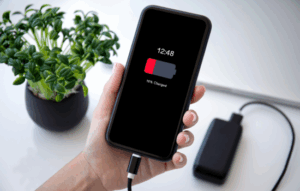Advertisements
In the digital age, our smartphones are essential tools for communication, work, and entertainment.
Advertisements
However, with constant use and the passage of time, it is normal for the performance of our cell phone to decrease, making it feel slow and less efficient.
Accumulation of temporary files, background applications, and lack of maintenance can significantly affect the speed and overall performance of your device.
Fortunately, there are apps and strategies that can help you optimize your phone, restoring the agility and efficiency of a new device.
Advertisements
See also
- TeaMaster: The Ultimate App for Unlimited Tea Recipes
- Turn your cell phone into a projector
- Discover the Secret to a Full Life
- The Best Apps to Simulate Life Insurance with AI
- Learn Martial Arts: From Judo to Kata Karate Shotokan
- Steeped: The Ultimate Unlimited Tea Recipes App
In this article, we'll take an in-depth look at how to use specific tools to speed up your phone. We'll highlight apps like FDroid and ES File Explorer for Android users, and we will analyze the new features it offers iOS 18 for iPhone users.
Through a combination of optimization apps and maintenance habits, you can maximize your device's performance and enjoy a smoother, faster experience. This article covers everything from common causes of slowness on mobile devices to practical strategies and success stories, all in a comprehensive guide that will help you turn your phone into an efficient and modern machine.
Why Does a Cell Phone Get Slow?
Before addressing solutions, it's important to understand the causes that contribute to poor performance on smartphones. With daily use, our devices accumulate various elements that can affect their performance:
Cache and Temporary File Accumulation
Apps often cache data to speed up certain operations. While this is helpful, over time, excessive temporary files can clog up your phone's internal memory and slow down the system. These files include redundant data, activity logs, and residual files that, if not cleaned periodically, can affect your device's speed.
Background Applications
Many apps continue to run in the background even when you're not actively using them. These apps consume system resources, such as RAM and processing cycles, which can cause a decrease in overall performance. It's common for social media, messaging, and other apps to keep running and updating constantly without us even realizing it.
Duplicate Files and Unnecessary Data
Downloading files, images, videos, and documents without proper organization can lead to the accumulation of duplicate or unnecessary data. This digital clutter not only takes up valuable internal storage space but also forces the system to search through a large volume of information, resulting in slower device response.
Outdated Operating System and Applications
The operating system and applications require regular updates to fix bugs, improve security, and optimize performance. A device that isn't updated regularly can fall behind, as older software versions can be less efficient and consume more resources.
Outdated Hardware
Over time, a device's hardware also becomes obsolete. Physical components, such as memory and processor, may not be able to withstand the demands of new software and app versions. However, even in these cases, there are methods to optimize performance and extend the lifespan of your phone.





One Response